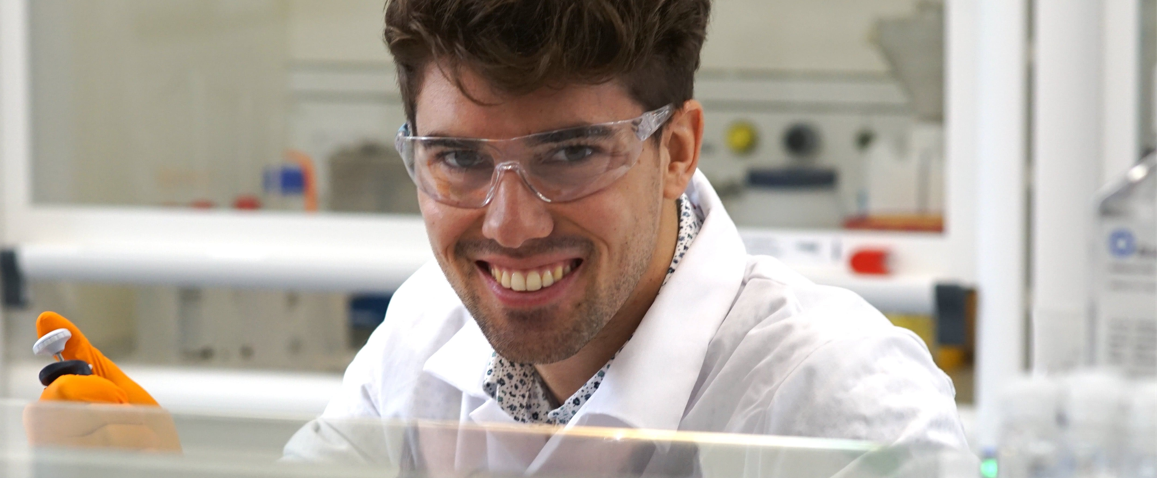The master's program in nanoscience is the continuation of an interdisciplinary bachelor's program in the natural sciences, in which the fundamentals of the core subjects physics, chemistry, biology and mathematics were learned.
Furthermore, the master's program revolves around structures and phenomena on the nanometer scale (1 nm = 1 billionth of a meter). Nanoscience researchers focus on the fabrication, characterization, and manipulation of individual atoms and molecules, as well as the very unique laws of the nanoworld based on surface, quantum, and self-assembly effects. Nanotechnological achievements are increasingly finding their way into modern everyday life in areas such as healthcare, information and communication technology, and the energy industry.
In the Master's program, the interdisciplinarity is continued, but there are even more possibilities to focus according to one's own interests.
In addition to the master's thesis, two project papers are completed in different disciplines. Four different specializations are available:
- Nanophysics focuses on the study of structures at the nanometer scale, and the understanding and control of quantum phenomena.
- Nanochemistry focuses on the generation and study of self-organizing structures, surface chemistry, nanostructured materials, and the observation of single macromolecules (e.g., nanocontainers)
- Nanobiology studies the structure of biomolecules and the mechanisms of nanomachines (e.g., molecular motors)
- Medical nanoscience focuses on the application of nanotechnology to the development of new drug therapies, on the design and
formulations, and on interactions of nanomaterials with biomolecules.
This interdisciplinary basic research enables, especially here in Basel, a close linkage with applied and commercially exploitable research.

